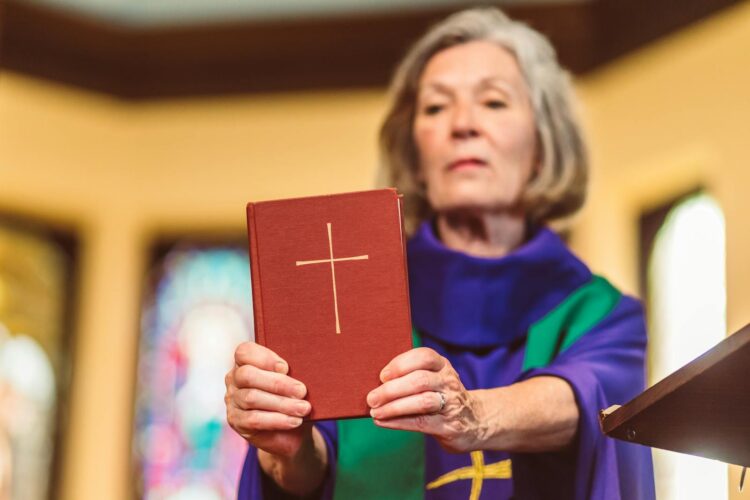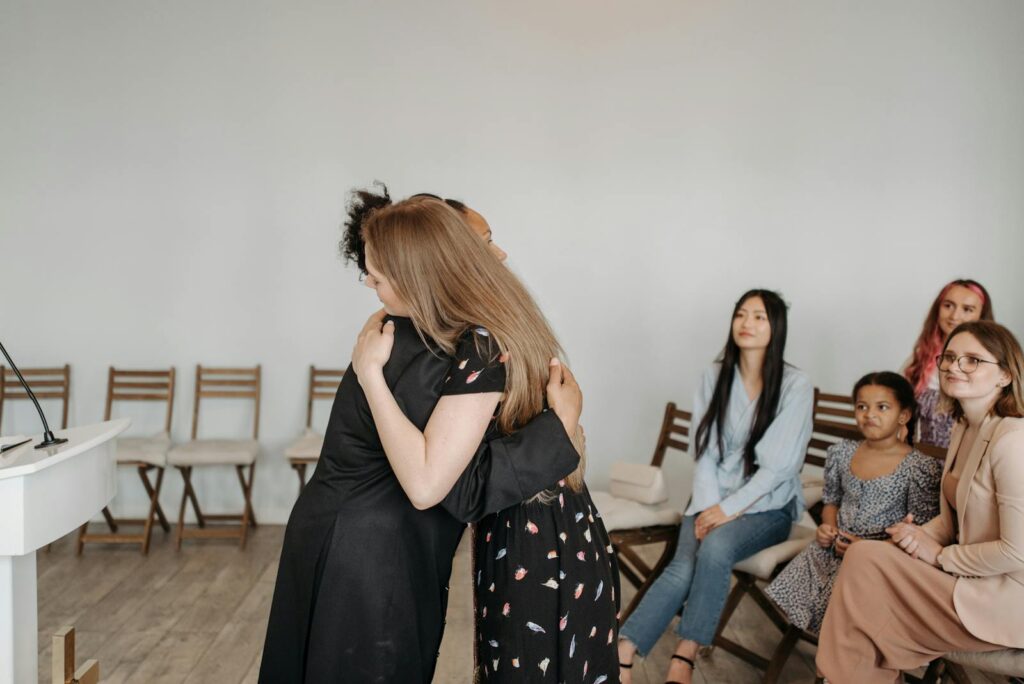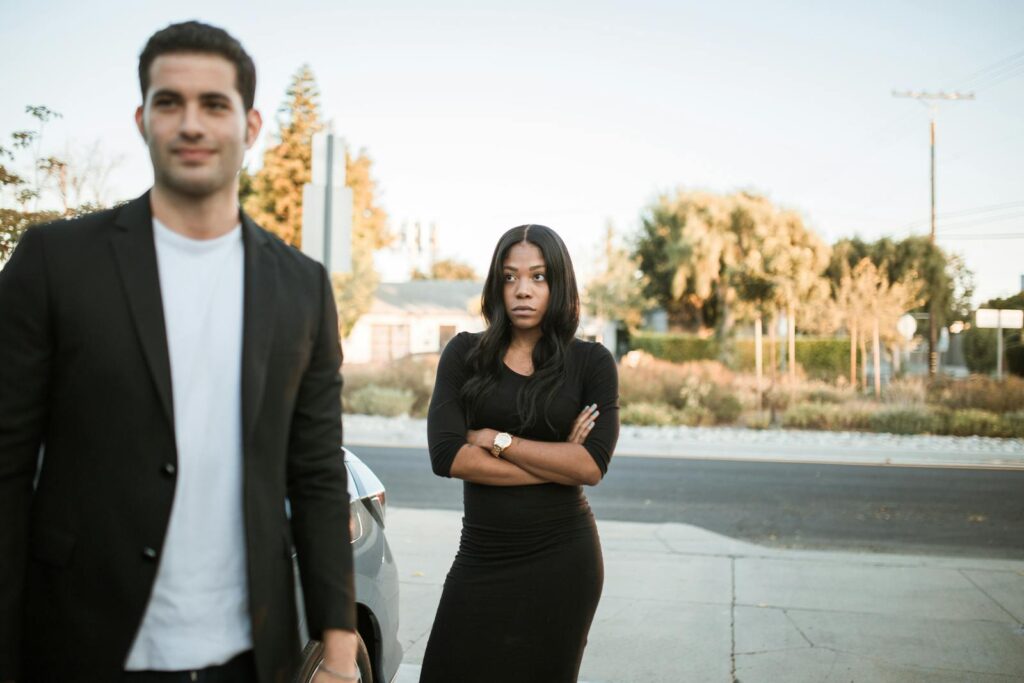
As kids, Bible stories seemed simple. Good triumphed, prayers were answered, and every parable had a tidy point. Then life started happening. People often hurt each other and fail to apologize. Faith got quieter, slower, harder to explain. The same verses still appear, but they now land differently. They sound less like rules and more like reminders that growing up means learning what faith really costs.
Forgiveness Takes Time

You think you’ve let go, but the thought still burns on bad days. It doesn’t come all at once—it fades, then flares up again when something reminds you. You forgive because holding on becomes exhausting, not because it stops hurting. It’s a slow release, like unclenching a fist. Some days, you do it easily. Other days, it feels like work you’ll be doing your whole life.
Faith Without Proof

Faith looks different when you grow older. It’s not certain anymore—it’s showing up even when nothing changes. You stop waiting for signs or reasons to believe. Some nights, it’s just sitting in the dark and talking to the quiet, hoping it means something. It’s not a grand act; it’s survival. Faith isn’t loud—it’s steady. The kind that keeps your heart open when the world goes quiet.
Pride Always Finds a Way In

It slips in quietly, not in arrogance, but in the small comparisons you make when you see someone else succeed. You tell yourself it’s harmless, but you feel it twist. The Bible’s warnings about pride start making sense the older you get. It’s not about being proud—it’s about forgetting where your worth comes from. Humility stops sounding soft and starts feeling like strength.
Loving Your Neighbor Isn’t Easy

You don’t really learn this one until people start disappointing you. It’s easy to be kind when everyone’s kind back. But then you meet people who drain you, who won’t listen, who never change. That’s where the verse comes alive. Loving them doesn’t mean liking them—it means staying decent when it’d be easier not to. Sometimes it’s silence. Sometimes distance. Either way, it’s still love.
Patience Isn’t Waiting Still

Patience isn’t sitting still—it’s moving through days that don’t move with you. It’s waking up every morning and doing what you can while life takes its time. The verse about waiting starts feeling real when there’s no progress to count. Waiting stops being a test and becomes a practice. You stop asking how long and start asking what it’s teaching you. It’s not calm—it’s faith in slow motion.
Money Tests Everyone

You don’t notice how much space money takes up in your mind until you start worrying about it. You tell yourself it’s about comfort, but it’s really control. The older you get, the harder it is to distinguish between enough and more. The verse about money stops sounding moral and starts sounding honest. It’s not about greed—it’s about what you trust most when things get tight.
You Reap What You Sow

It sounded like karma once. Now it feels like the truth. The small choices—what you say, what you ignore, how you treat people—grow roots. You start seeing patterns you planted years ago, both good and bad. The verse doesn’t threaten you. It reminds you that your days are seeds, and one day, you’ll live among what you’ve sown. It’s sobering—but it keeps you honest.
Love Takes Work

Love stops being a feeling and becomes a habit. It’s patience when you’re tired, gentleness when you’d rather be sharp. The Bible calls it enduring, and that word starts to make sense. Love isn’t fragile or poetic—it’s built, repaired, and rebuilt again. The longer you live, the more you see it’s not about butterflies. It’s about choosing the same person, the same care, over and over.
You Can’t Serve Two Masters

You tell yourself balance is possible, that you can chase success and still keep your peace. But somewhere, the scale tips. You start saying yes too often, staying up too late, calling ambition purpose, so it sounds noble. The verse about serving two masters no longer feels abstract. You notice how easily comfort replaces conviction. And one day, without meaning to, you realize which one you’ve been answering to.
Grace Never Feels Fair

Grace hits differently when it’s not yours. Watching someone thrive after what they’ve done feels wrong at first. You want fairness, not mercy. But then you think about all the times you were forgiven quietly, when no one owed you that kindness. That’s when it lands—grace isn’t justice, it’s generosity. It doesn’t balance the scale. It breaks it, and somehow that’s what makes it beautiful.
Turning the Other Cheek

As a kid, it sounded weak. As an adult, it feels like a restraint you can barely manage. Walking away takes more strength than fighting back. You start to understand that “turning the other cheek” isn’t surrender—it’s control. It’s knowing you could hurt back, but choosing not to. That kind of peace doesn’t come naturally. It’s learned, usually the hard way.
Faith Without Action Feels Empty

Belief isn’t enough anymore. You can talk about love and kindness all you want, but it means nothing if it never leaves your lips. The verse about faith without works hits home when you realize that words alone don’t feed anyone. It’s not about grand gestures—it’s about small, steady ones. Holding a door. Checking in. Giving time. Living what you say you believe.
Worry Solves Nothing

You stay up late replaying what-ifs, thinking it helps. It doesn’t. The Bible says not to worry about tomorrow, and for years, that felt naïve. Then you realize it’s practical. Worry doesn’t stop what’s coming—it only drains what’s here. You start letting go a little earlier each time. You don’t stop caring; you stop carrying it all alone.
Everything Has Its Season

You don’t really understand that verse until life starts changing faster than you can hold it. Jobs end. People drift. New things emerge where old ones once stood. It’s not all loss, but it’s never just gain either. After a while, you stop trying to keep everything steady. You let things move as they need to. There’s peace in that—learning that nothing meant for you has to be chased.
You’re Never Really Alone

You feel lonelier when the world keeps moving without you. But sometimes that alone time helps you start hearing life again—the hum of a fridge, rain against the window, your own breath keeping pace. You realize presence doesn’t always need noise or company. Sometimes it’s just stillness that stays beside you. You’re not alone. You just needed the silence long enough to notice it.

